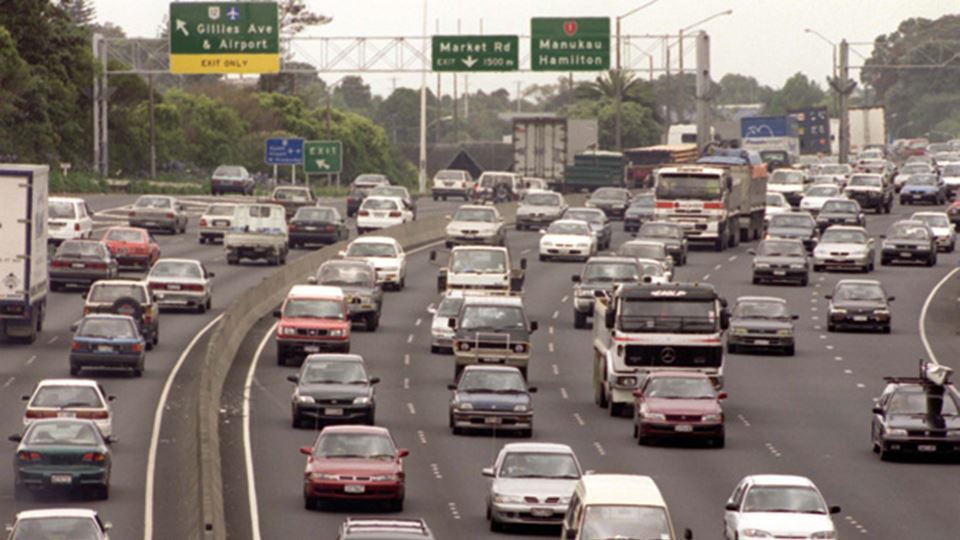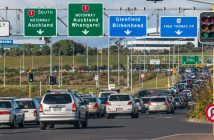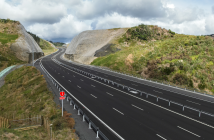 Productivity in Auckland could be boosted by at least $1.3 billion per annum if use of the roading network could be optimised, a new report claims.
Productivity in Auckland could be boosted by at least $1.3 billion per annum if use of the roading network could be optimised, a new report claims.
A New Zealand Institute of Economic Research (NZIER) report commissioned by the EMA, Auckland International Airport Ltd, Infrastructure NZ, Ports of Auckland Ltd and the National Road Carriers Association took a detailed look at the social and economic costs of congestion to Auckland’s lifestyle and economy.
The report found that if Auckland’s road network could operate at its designed capacity during week days it would benefit the Auckland economy by nearly $3.5 million per day.
Sick days cost the New Zealand economy $1.5 billion per annum – fixing Auckland’s congestion illness would be like finding a cure for the common cold and immunising the entire country against the flu.
The funding organisations are united in the view that there is a pressing case for decongestion measures to be introduced in Auckland now, not in the 6-10 year time frame currently being contemplated by both central and local government.
All agreed the size of the productivity prize and liveability gains for Auckland and the scale of the problem demanded action.
NZIER took a sophisticated model that can break down the impact per business sector and applied Auckland Transport’s latest 2016 traffic flow information to the problem that is increasingly strangling Auckland and its economy.
“What business is telling us and what we’re seeing in the numbers is that congestion has worsened exponentially in the past three to five years,” says Kim Campbell, CEO, EMA.
“Our EMA members who took part in focus groups put the productivity loss in the 20-30 per cent bracket, so what the above figures show is the average productivity loss across the entire population of Auckland.”
Painful problems
Some of the highlighted costs were:
- hiring 20 per cent more staff to carry out the same volume of work
- trucking firms making fewer runs over fixed routes over longer time frames to deliver less volume of product with a near 30 per cent productivity loss
- service firms establishing depots around the city, at significant costs, to meet service promises i.e. one-hour replacements or deliveries
- trucking firms refusing to deliver to some parts of the city described as black holes for their vehicles.
According to Infrastructure NZ CEO Stephen Selwood, the actual productivity gains may be even higher.
“We know this estimate is conservative.
“The model only measures congestion on five of seven days and of course, business is a seven-day a week operation.
“It also only values leisure trips at less than half the value of work time, a value I’m sure many Aucklanders would agree undershoots the cost.
“I’m also very concerned that the Auckland Transport Alignment Plan (ATAP) only sets its sights on not making congestion worse in the next 30 years and its 10-year time-frame for introducing congestion charging is just too far away.”
Multifaceted approach
Ports of Auckland CEO Tony Gibson stressed the report showed a need for a multifaceted approach to reducing congestion to boost productivity.
“Congestion is making life worse for all of us, so we need to act now.
“There is no one answer to the problem, we need to attack congestion with everything we’ve got: investment in road, rail, public transport, technology, demand management and so on.
“We also need to be much smarter and think further ahead in how we plan transport for the future.”
National Road Carriers Association CEO David Aitken also highlighted lifestyle issues caused by congestion as a fundamental difficulty for recruiting in the freight sector.
“The Road Freight sector has seen increasing congestion for some years.
“The fact that travel times have increased 47 per cent in just three years and is only going to get worse if we don’t do something is a clear sign we need to be thinking about solutions and taking actions now.
“Productivity has declined in an already tight market.
“Five years ago a truck driver could make a living on about 50 hours per week, but now with congestion that’s up to 70 hours a week and people do actually want to spend time with family rather than sitting in Auckland traffic.
“At a time when it’s hard to get drivers, we are losing them as they don’t want to be sitting in congestion all day.”
While all of the CEOs acknowledge that better progress is being made than has been the case in the past, authorities need to demonstrate a much greater sense of urgency.
That Auckland experiences worse congestion than cities up to five times its size is an indictment on poor planning and inadequacy of investment which goes back decades.
Neither Auckland nor New Zealand can afford to let the problem get any worse. We must act now to realize the social and economic opportunities that decongesting Auckland presents.




